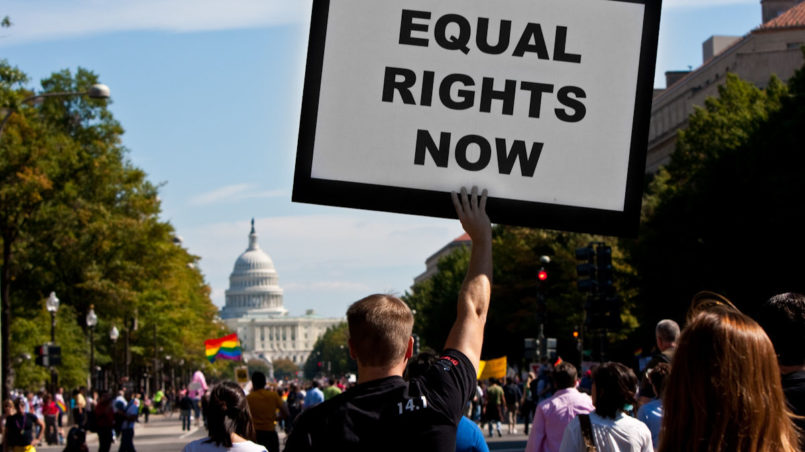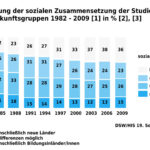The utopian idea of an equal-chance society

Volker Frey, Secretary General of the Litigation Association, explains that the association gives legal support to people filing lawsuits for discrimination (race, religion, disability). In twelve years, there have been about fifty lawsuits, most of which were won. Since no changes / improvements in this area can be achieved without people filing, they are always sought-after. Preferredly in areas where there is discrimination, butwhere no previous claims have been filed. So far, these are usually individual lawsuits, collective actions would however be desirable for being more effective.
Austria was convicted twice by the EU before it finally implemented the EU anti-discrimination directive – and did so only in its minimal version.
Complaints due to discrimination can only be filed for damages, not a resolution (ie accessibility for the disabled). Whether a person sues for their right is mostly a matter of social class – the middle class files most frequently, though certainly the lower classes are most affected by discrimination. Reasons include lack of information and economic resources. The first Muslim woman to complain because of the headscarf in the workplace, was a doctor.
The cuts in social spending for third country nationals envisaged in Austria (reduction of the minimum benefit for refugees), Volker Frey considers unlawful.
Karin Heitzmann, from the perspective of the mainstream economics, sees inequality as an incentive for change. She distinguishes between equality or equity of opportunity and that of results: whereas presently we almost exclusively pay attention to the former (for example, all have the same books at the school), society should, as a target, rather strive for fairness (eg similar training results) – and also intervene unjustly in favor of those less potent. One should create political space for and hold a public debate about what society perceives as just. In order to then achieve this idea of fairness, massive unequal interventions must be executed. For example, the best schools and the best teachers ought to work where the weakest students are to be tended to. The equal opportunity economy contends itself with, is not enough.
Andrea Härle of Romano Centro (a union which is a member of the litigation association) looks on the educational programs as the focus of the activities of her association. Many of the Roma who have come to Austria as immigrants (mainly from Serbia and Romania), have little education. This state even worsened dramatically since the turn. Four employees attend as school mediators, working mostly on the relationship between parents and school. Parents of Roma children often avoid parent-teacher meetings and other contacts to school for fear of being regarded as “stupid”. Although in Haerle’s experience, many Roma report on discrimination, but very rarely file lawsuits. Even admitting to oneself that one is being discriminated against is rare and difficult, because the people affected often feel ashamed.
August Gächter of the Centre for Social Innovation believes, that unequal treatment takes place mainly due to incompetence of the people involved, be it in the schools or at the AMS. The unemployed person, who is actually the victim of the economic system, which doesn’t provide enough jobs (human right to work), is named as a culprit.
According to the Euro barometer, which annually measures Discrimination, Austria was repeatedly among the two countries with the highest rate of discrimination. However, when it comes to how well informed victims are about their rights, we ranked last. It is important therefore, to broaden the knowledge base and work on the professionalism of consultants, teachers and so on.
In the US there was an investigation in hospitals showing that only few changes came about in the hospital itself, in the wake of lawsuits filed for discrimination. The changes in the environment of the hospital (especially in the ambit of the processing court) however were significantly measurable. At Ford England, there were several reports of harassment, but only when the company management saw a slump in sales, they stepped in and hired a former trade unionist who reprocessed the allegations and worked with the departments concerned for five years to follow.
Preventive work against discrimination is considered to be important by all panelists. The question is, where to start.. And how to do it: reformation or revolution of the system in question?
Translation from German: Serena Nebo
Credits
| Image | Title | Author | License |
|---|---|---|---|
 |
Equal_Rights_Now_National_Equality_March_Washington_DC_2009_4006527887 | Tony Webster | CC BY-SA 4.0 |
 |
grafik-chris02 | Patryk Kopaczynski | CC BY-ND 4.0 |
